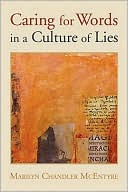A Review of "A Modest Proposal"
[To start my new adventures with this blog, I would like to post an essay I recently wrote for my British Literature class.]
Go here to read "A Modest Proposal."
Swift's Great Satire
 Satire has existed as far back as ancient Rome (indeed, tradition says that Quintilian, a Roman rhetorician, coined the term), but it was not until the 18th century that it became a true literary genre. This period saw the emergence of such literary giants as Alexander Pope, John Dryden, and Voltaire, all brilliant satirists. Jonathan Swift (1667-1745) surpassed them all, however, considered by many the greatest prose satirist in the English language. Satire is a literary work that holds up human vices and follies to ridicule or scorn, often employing irony and sarcasm. Swift's short pamphlet “A Modest Proposal” is an excellent example of his superb use of the genre. The piece addresses the Irish famine, attempting to offer a solution for the thousands of starving Irish children. Utilizing three types of persuasion borrowed from Aristotle’s Rhetoric, Swift makes the piece quite convincing, luring the unsuspecting reader to agree with the author’s basic premises before revealing his shocking conclusions – yet, though a satiric seriousness does pervade the work, a true sincerity and earnestness is at the heart of “A Modest Proposal.”
Satire has existed as far back as ancient Rome (indeed, tradition says that Quintilian, a Roman rhetorician, coined the term), but it was not until the 18th century that it became a true literary genre. This period saw the emergence of such literary giants as Alexander Pope, John Dryden, and Voltaire, all brilliant satirists. Jonathan Swift (1667-1745) surpassed them all, however, considered by many the greatest prose satirist in the English language. Satire is a literary work that holds up human vices and follies to ridicule or scorn, often employing irony and sarcasm. Swift's short pamphlet “A Modest Proposal” is an excellent example of his superb use of the genre. The piece addresses the Irish famine, attempting to offer a solution for the thousands of starving Irish children. Utilizing three types of persuasion borrowed from Aristotle’s Rhetoric, Swift makes the piece quite convincing, luring the unsuspecting reader to agree with the author’s basic premises before revealing his shocking conclusions – yet, though a satiric seriousness does pervade the work, a true sincerity and earnestness is at the heart of “A Modest Proposal.”The Irish Famine of 1740 to 1741 refers to the Irish people, rather than Ireland itself. The island was rich with produce and animals; only the crops (mostly potatoes) of the peasant farmers suffered a poor harvest. The English absentee landlords fed off the abundance of the land and starved the Irish citizens to death. One historian, John Mitchell, remarked, “A million and a half men, women and children were carefully and peacefully slain by the English Government. They died of hunger in the midst of abundance, which their own hands created.” Many people wrote pamphlets to expose the ruthlessness of the English and the desperate state of the Irish or to offer different schemes to ease the poverty of thousands and make them useful to the public. With his own satiric pamphlet, Swift joined these writers, employing the first type of Aristotle’s persuasion, “ethos.” Ethos refers to the credibility of the author. By grouping himself with these other writers, Swift shows that he is embarking on a good cause. In the opening title of his piece, he explains that he wishes to prevent the children of Ireland from being a “burden to their parents” and hopes to make them “beneficial to the public” (“A Modest Proposal,” 1114). Not only, however, does he have England in mind, but he also considers the welfare of the children – with his plan they will not want “food and raiment for the rest of their lives” (1114). He also declares that he wishes to end “voluntary abortions” in which women murder their own children (1115). His reasons for his plan at first appear anything but harmful.
To further support the integrity of his schemes, Swift uses the second type of Aristotelian persuasion, “pathos.” Describing the suffering of the Irish in his opening paragraph, he appeals to human emotion, trying to awaken pity and compassion. He calls it a “melancholy object” to walk through Dublin or travel in the countryside and behold the “beggars of the female sex, followed by three, four, or six children, all in rags and importuning every passenger for alms” (1114). When speaking of the mothers who are forced to murder “the poor innocent babes,” he says it is not for shame, but because they cannot provide for their own children; indeed, the very sight of the starving infants would “move tears and pity in the most savage and inhuman breast” (1115). Yet, in the midst of wringing pity from his audience, Swift suddenly reveals his own scheme for allaying the Irish suffering. He announces,
I have been assured by a very knowing American of my acquaintance in London, that a young healthy child well nursed is at a year old a most delicious, nourishing, and wholesome food, whether stewed, roasted, baked, or boiled; and I make no doubt that it will equally serve in a fricassee or a ragout (1114).
 Instead of awakening further empathy, his scheme produces disgust. It is this paragraph, however, that makes it readily apparent that Swift’s pamphlet is satiric and he is ridiculing the metaphor, “The English are devouring the Irish.”
Instead of awakening further empathy, his scheme produces disgust. It is this paragraph, however, that makes it readily apparent that Swift’s pamphlet is satiric and he is ridiculing the metaphor, “The English are devouring the Irish.”Yet, he retains his controlled and grave tone, using the third Aristotelian type of persuasion to support his satire. “Logos” employs logic and outside sources to convince the audience. Swift first appeals to a François Rabelais, a fellow satirist (who he jokingly calls “a grave author” and “eminent French physician”), to prove that his schemes will lessen the Catholic population (1116). Here he parodies the hostility that most English felt against the Papists, especially after the Glorious Revolution that deposed James II and successfully kept Catholics off the throne. Later on in the piece, he also invokes the wisdom of a friend who believes that they might use the children as a substitute for venison meat. Swift casts this plan aside, however, because the meat of older children would probably be tough and lean and some people might think that “such a practice…as a little bordering on cruelty” (1116). The irony of this statement is alarming because Swift’s actual scheme does not simply border on cruelty, but has fallen headfirst into barbarity. Nevertheless, he justifies his friend’s proposal because it was “put into his head by the famous Psalmanazar,” who had written a fictitious book on Formosa and described the selling of plump young girls as food (1117). Swift’s utilization of logos seems to fail with these repulsive examples.
At a deeper level, though, the pamphlet appears to have a very different purpose than offering up Irish children as food for the English. Swift’s Aristotelian persuasion worked perfectly with both ethos and pathos and, at a closer glance, it also works with logos. He convinces the audience of the horrible state of the Irish and the ruthlessness of the English. The English are already devouring the Irish children, already true cannibals. As he draws near the conclusion of his piece, he uses irony to emphasize this, writing that he will not consider other ways to deal with the Irish problem, “of learning to love our country….of quitting our animosities and factions, nor acting any longer like the Jews, who were murdering one another at the very moment their city was taken….of teaching landlords to have at least one degree of mercy towards their tenants” (1118). The pamphlet is a modest proposal for the preservation of a nation on the verge of extermination. He exemplifies his great misery and distress for the Irish people when he tells those who would oppose his schemes to ask the Irish parents,
whether they would not at this day think it a great happiness to have been sold for food, at a year old in the manner I prescribe, and thereby have avoided such a perpetual scene of misfortunes as they have since gone through by the oppression of landlords, the impossibility of paying rent without money or trade, the want of common sustenance, with neither house nor clothes to cover them from the inclemencies of the weather, and the most inevitable prospect of entailing the like or greater miseries upon their breed for ever (1119).
Works Cited:
Swift, Jonathan. “A Modest Proposal.” 1729. The Norton Anthology of English Literature: The Major Authors. Stephen Greenblatt, General Editor. 8th edition. New York: W. W. Norton & Company, Inc., 2006
Labels: book reviews, bookish musings, explication de texte
Posted by Nicole Bianchi at 7:49 PM
![]()


 This is life seen through the eyes of a writer. A blog that critically examines literature, music, and film. NB, initials which coincidently coinside with the Latin words "nota bene" (mark well), belong to the blog poster, a bibliophile who likes to haunt libraries and book stores, talk about all things bookish, and ramble at any length on things regarding literature. Many of the articles posted here were written as essays for high school and college.
This is life seen through the eyes of a writer. A blog that critically examines literature, music, and film. NB, initials which coincidently coinside with the Latin words "nota bene" (mark well), belong to the blog poster, a bibliophile who likes to haunt libraries and book stores, talk about all things bookish, and ramble at any length on things regarding literature. Many of the articles posted here were written as essays for high school and college.






1 Comments:
Unfortunately some people just don't understand satire. True story: One of my high school English teachers had her class read this and they all took it completely seriously and were absolutely horrified that Swift would have suggested such a thing. To what depths have we fallen.
1/12/2007 4:41 PM
Post a Comment
<< Home